Cyprus and Crete – the third and fifth largest Mediterranean islands respectively, are in the top five favourite holiday island destinations. The similarity in names and cultures (the native people of the islands are ethnic Greeks), the similar climate, geographical proximity and the local economy’s orientation towards tourist are some of the reasons why the two islands are often confused – but only until the first visit!
Cyprus and Crete: two similar yet very different islands. Cyprus is an independent state where, as myth has it, Aphrodite, the goddess of love, emerged from the sea. Crete is part of Greece, the motherland of the Aegean civilization where, according to myth, Zeus the god of thunder was born. The islands are bound to compete forever with such a glorious history!
But where should we go – to the motherland of Zeus or the motherland of Aphrodite?
Beaches and the sea
If you want to be guaranteed clean beaches with clear waters then you should go to Cyprus. Soft sands and shallow waters make Cyprus’ beaches a wonderful place for a holiday for both adults and even the smallest children.
For those tourists worried about the colour of the sand – the majority of Cyprus’ beaches tend to be grey, but there are also resorts with white sand. For those looking for isolated or gravel or unequipped beaches then you will also find them in Cyprus. Most tourists though will be quite happy with the clean and sandy beaches near the hotels.
If you are an adventurer by nature then go to Crete, rent a car and travel from beach to beach to see the wide range in variety and quality available.
If you are not going to travel around and plan to have a quiet holiday near a hotel, then you need to find out what kind of beach it has beforehand. (Don’t just take the word of the tour agent, check it out for yourself). If you are going to Crete with small children, then it’s a good idea to find out how comfortable the entrance to the sea is.
The seas around Crete vary quite a bit, so it’s worth noting this when planning a visit. The Ionic sea to the west and the Libyan sea in the south are warm and calm but in the north, which borders the Aegean Sea, it is colder and much less calm.
If all you’re looking for is a guaranteed comfortable holiday on a sandy beach with a warm, calm sea, then Cyprus is your choice. If you want surprise and adventure, without any research into the type of sea or beach, then you should definitely go to Crete.
Climate
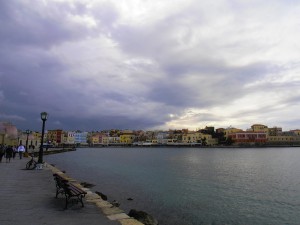 For many tourists, where to go is dictated somewhat by the month they have chosen for their holiday.
For many tourists, where to go is dictated somewhat by the month they have chosen for their holiday.
Cyprus is a warmer island (Weather in Cyprus). It’s 19 ºС + on average in March, and in April and May you can fully enjoy a beach holiday, whereas on Crete it is still cool. June is already a classic southern summer in Cyprus with temperatures close to 30ºС+, whilst it is a slightly cooler 25ºС+ on Crete.
It’s not outrageously hot in Cyprus in July and August, with temperatures usually around 35ºС, and you will find the beaches full of holiday-makers with children – you can stay in the warm sea for hours. It’s slightly cooler on Crete at about 30ºС+.
September and October are wonderful months for a holiday in both Cyprus (Cyprus in September, Cyprus in October), and Crete. The mellow season!.
People still do swim in Cyprus in November, but a lot depends on the weather. It is between 14ºС+ tо 20ºС+ in Crete – definitely their beach season.
The winter is mild on both islands, with an average temperature of about 15 ºС, although it is a little warmer in Cyprus, which can surprise tourists who visit in February – spring in winter!
Hotels and Service
Cyprus’ hotels are the backbone of their tourism industry and are carefully protected by the Cypriots. They are not only a place to spend your holiday, but are also an integral part of the city’s infrastructure. Business meetings are held here, weddings, birthday parties and banquets. If you are acquainted with Turkish and Egyptian service, you will be pleasantly surprised by the service in Cypriot hotels. Prices are higher on average, but the places are well maintained, there is no begging for tips or any other of the “eastern service” attributes.
The standards of Cypriot hotels are similar to those in Europe, due to a large extent to the fact that the resorts are in demand by Europeans, which means hoteliers organise their service with more care.
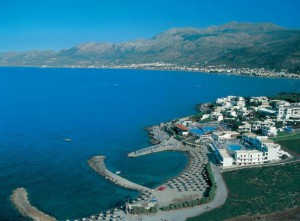 Another conspicuous feature is that most hotels on the island are family owned, and the tourists are treated like guests. Cypriot hospitality is well known!
Another conspicuous feature is that most hotels on the island are family owned, and the tourists are treated like guests. Cypriot hospitality is well known!
In Crete the standard of hotels is more in line with Greece, but it is one of the safest regions. The island is popular with Britons and so the hotels keep their standards high. You can safely stay in a hotel that is aimed at the British tourist, but check beforehand whether it’s more popular with party-going young British if you prefer a quieter holiday.
The disadvantage of such a hotel for a tourist who’s used to the Turkish “all inclusive” system is that hotels aimed at British tourists are usually not. The all inclusive service is more typical in hotels which Russians frequent.
Prices may be quite high in hotels aimed at the British too, and you may find the ‘normal’ hotels on Crete are a little cheaper due to the fact that Cypriot hotels are international and aimed at Europeans. But if you stay in a hotel aimed at British tourists on Crete, prices are likely to be above those in Cyprus.
You will probably appreciate the hotels specializing in taking Russian tourists, which will more than likely be all inclusive, with prices and service being moderate.
Cuisine and restaurants
 The number of all inclusive hotels is much less on Crete and Cyprus than in Turkey or Egypt, although this is beginning to change and there are more hotels organizing this type of service to attract Russian tourists.
The number of all inclusive hotels is much less on Crete and Cyprus than in Turkey or Egypt, although this is beginning to change and there are more hotels organizing this type of service to attract Russian tourists.
It may be that an all inclusive package doesn’t meet your expectations, but there are hotels which offer this service at a very high standard, the ultra all inclusive St. Raphael, for example.
Is it worth having all your meals in the hotel if you are holidaying on one of the paradise islands? The local restaurants are very clean and the food on both Cyprus and Crete is healthy. The olives, homemade cheese (Greek or Cypriot feta), fresh vegetables and olive oil are much loved, and the prices in the taverns are moderate – a good lunch with drinks will cost around €20-30 per person.
 This is why you shouldn’t deprive yourself of the culinary pleasures of the local restaurants, especially since our website can become a wonderful guide around the restaurant world in Cyprus!
This is why you shouldn’t deprive yourself of the culinary pleasures of the local restaurants, especially since our website can become a wonderful guide around the restaurant world in Cyprus!
When holidaying in Cyprus, please try the meze – it’s a real feast – spanacopita (a pie with feta cheese and spinach), baked rabbit, kleftiko, shashlik, the dakos bread, local cheeses mizitra and antotirus and, of course, the famous Cypriot halloumi. Wash it down with a high quality Cypriot wine (for more details please see our review).
Don’t forget the zivania or the vodka made from local grapes.
By the way the seafood in Cyprus is also very good, although not so varied as in other Mediterranean countries. Try the local  dorado (tsipuro) and seabass (common bass), squid and octopus.
dorado (tsipuro) and seabass (common bass), squid and octopus.
When holidaying on Crete, order the buns made of phyllo dough stuffed with anfotiros cheese (called calitsunya), mutton moussaka, or young goat baked on the coals, a local version of pilaf, kotopouli, snails or seafood, as well as local jam for dessert. Crete wine or rakia, made of mulberries, goes wonderfully with it.
Although there cuisines of Cyprus and Crete have a lot in common, nevertheless each is very individual.
Editorial note
Cyprus or Crete? The choice is up to you! We made our decision over 15 years ago. Yes, the Greek culture and the Greek cuisine is surprisingly close to the British people. But Cyprus, having all the advantages of the island and continental Greece has a distinct European charm, a higher level of culture and service, and we hope very much that you will see it firsthand!




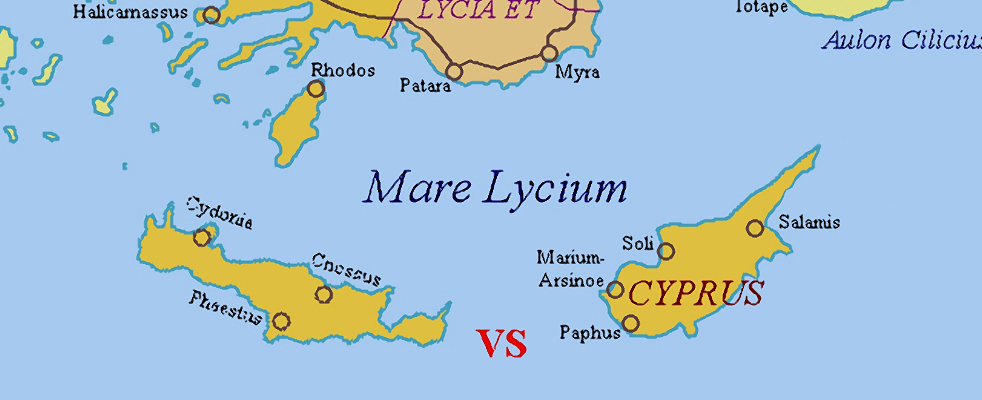

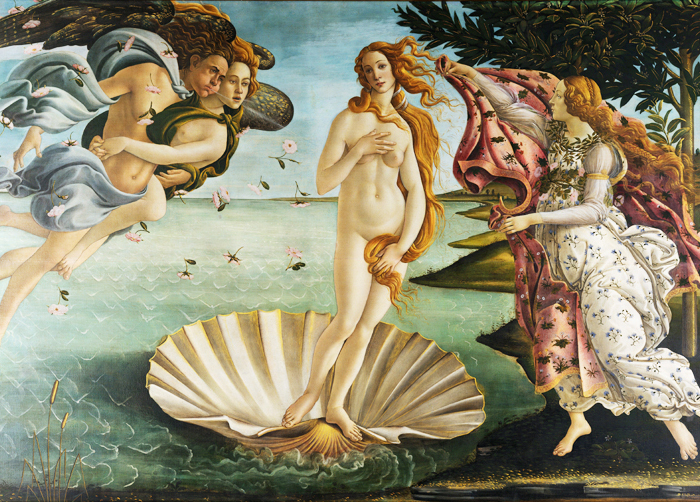

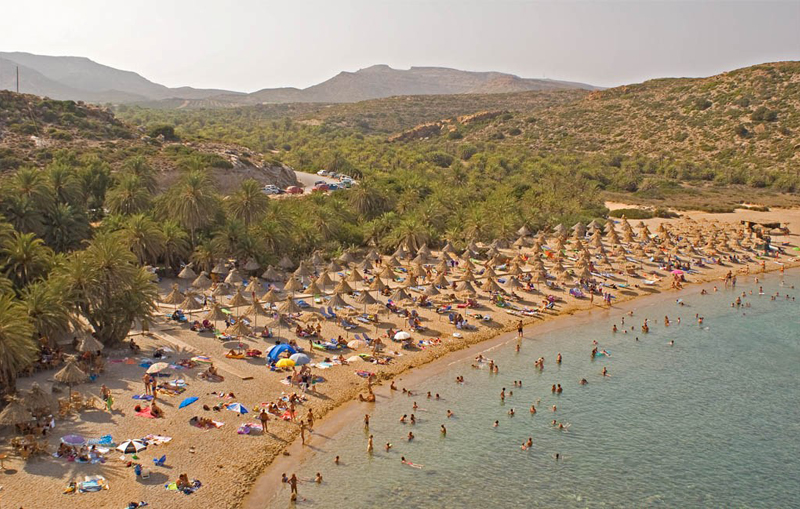
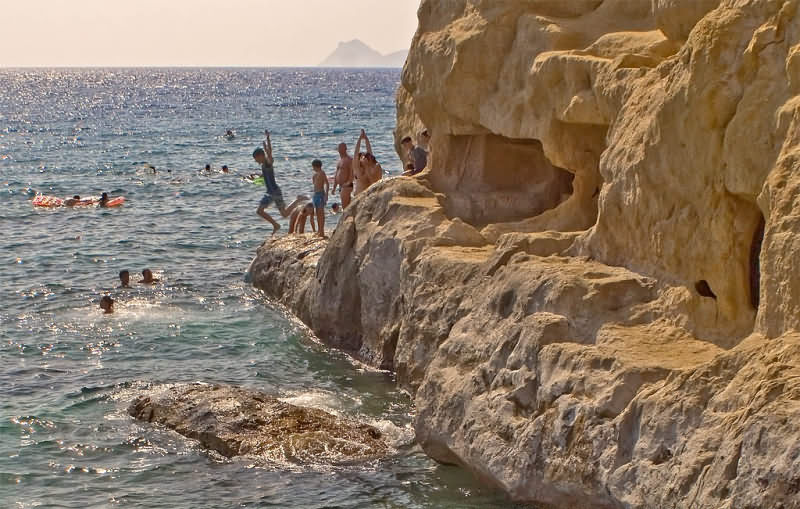
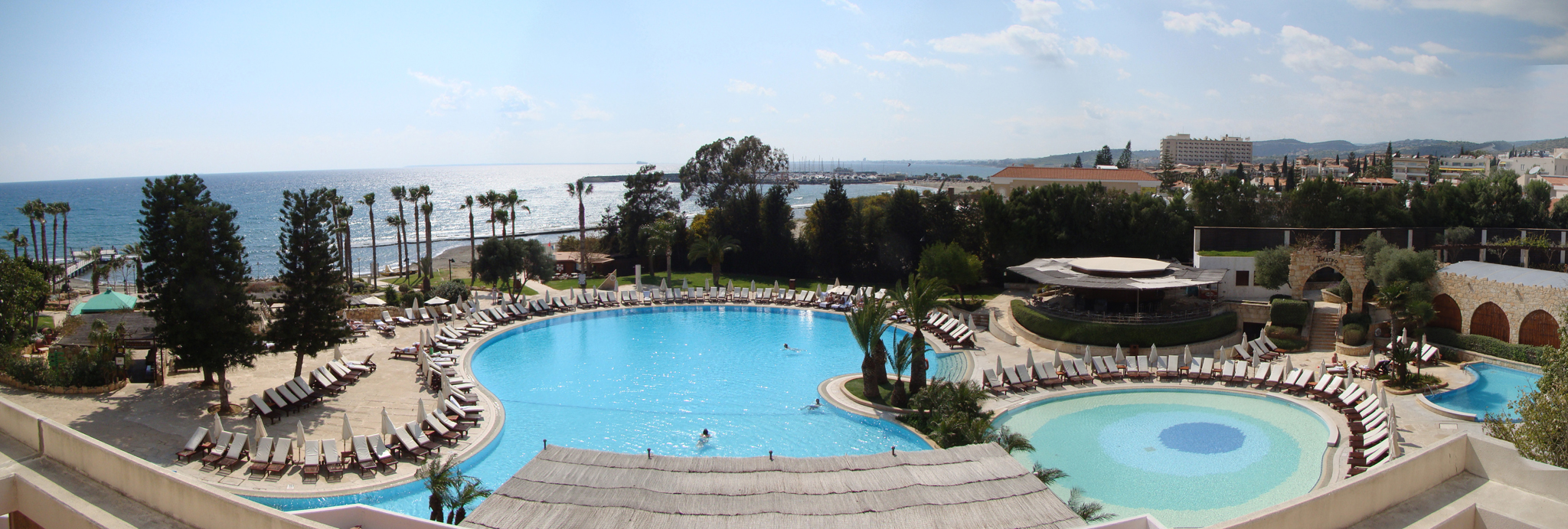

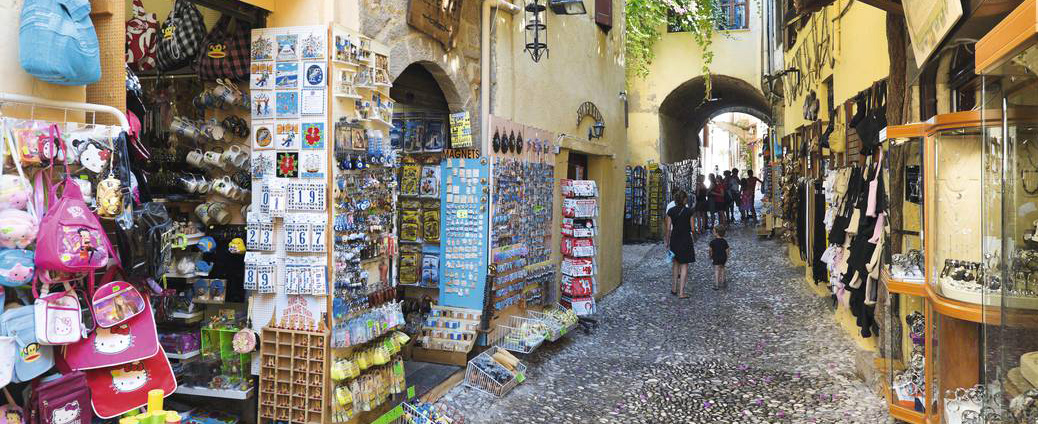
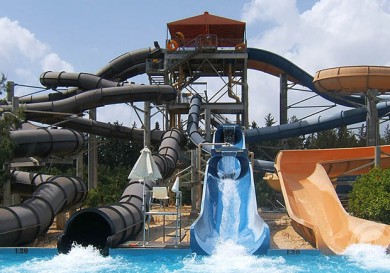
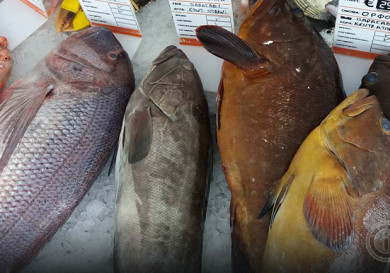
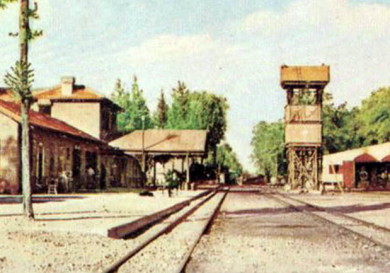
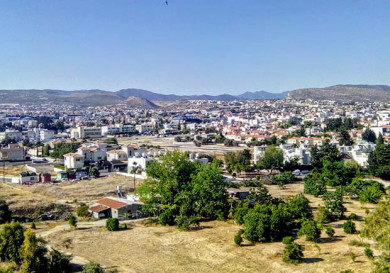

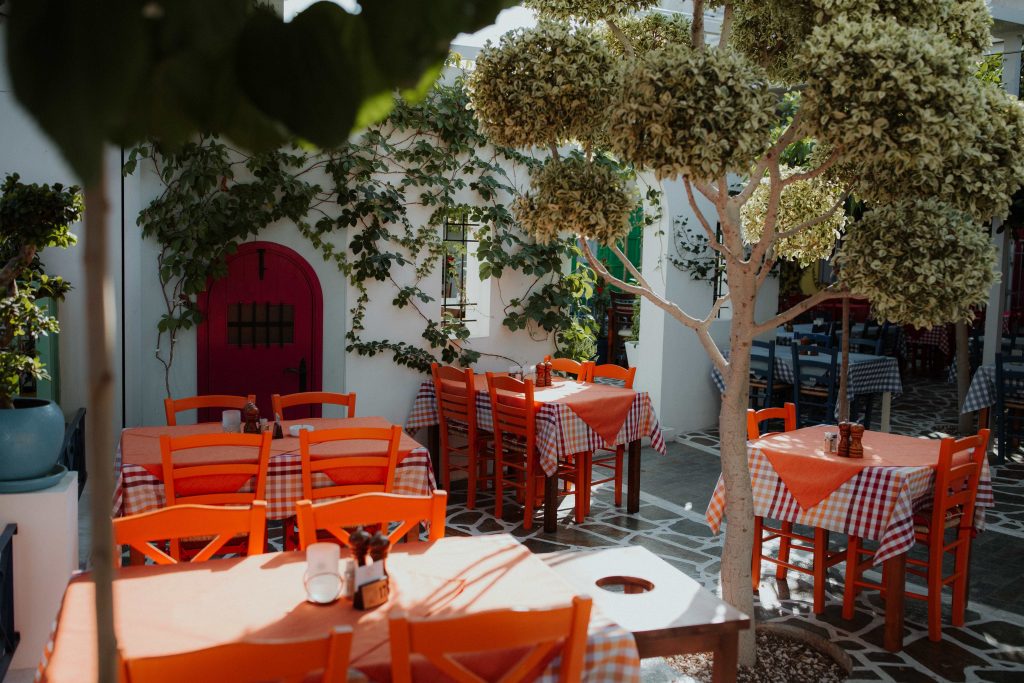






Crete is safer, the food is around ten times better, plenty of beaches with amazing white sand, amazing views if you want to go up in the mountains, biggest gorge in Europe – I can keep going.
After you saw them both once you’ll never go back to Cyprus. Better try other places like Zakynthos or even Sardinia. Or Malta.
Cyprus is great. But you have to rent a car to really explore the island. High mountains, beautiful forests, vineyards, lookouts, nature trails (Aphrodite trail, Artemis trail,…), wonderful nature (Akamas, Cape Greco, Troodos),
fantastic monasteries (Kykkos, Stavrovouni,…), lot of nice churches which are still open, historic UNESCO churches and great beaches (Konnos, Nissi or Lara with turtles).
Important is to arrive out of season when there is less people.
It is great combination of nature, beaches, historical sites and spirituality. At the same time there is the best weather in all Europe and you may get air tickets for great prices.
We have been to Cyprus twice and going there again in few days.
I like the Cyprus much more than Malta – dense population, less nature, less mountains in Malta.
Sardenga is on my wish list 🙂